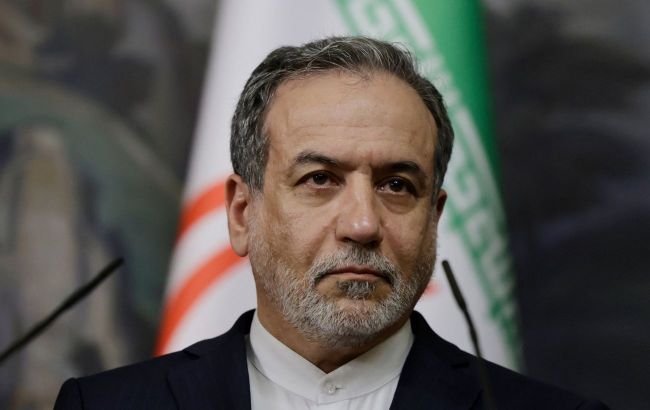Iran considers withdrawal from nuclear deal and restrictions over Strait of Hormuz
 Photo: Abbas Araqchi, Minister of Foreign Affairs of Iran (Getty Images)
Photo: Abbas Araqchi, Minister of Foreign Affairs of Iran (Getty Images)
Iran does not rule out withdrawal from the nuclear deal and possible blocking of the Strait of Hormuz. Tehran's Foreign Ministry says it is waiting for the aggression to end before returning to diplomacy, The Guardian reports.
Iranian Foreign Minister Seyed Abbas Araghchi avoided a direct answer about Tehran's possible actions in response to international pressure.
He did not confirm whether Iran plans to restrict global trade through the Strait of Hormuz or withdraw from the Nuclear Non-Proliferation Treaty.
Araghchi emphasized that Iran has many options, but diplomacy remains a priority.
"There are a variety of options available to us- and that’s it ... of course the way for diplomacy should always remain open, but we are not in a situation right now to decide how to engage in diplomacy once again and with whom, so let’s wait for our response," the Minister said in a speech in Istanbul.
He added that after the aggression stops, Iran will consider further steps in diplomatic negotiations.
In addition, Araghchi sharply criticized the Donald Trump administration, accusing it of betraying diplomatic efforts and deceiving American voters.
The minister said that he would soon visit Moscow to meet with Russia's Vladimir Putin.
In his speech, Araghchi also hinted at criticizing Israeli Prime Minister Benjamin Netanyahu, calling him a wanted war criminal, further exacerbating regional tensions.
US strike on Iran
The situation in the Middle East remains extremely tense after the sudden US air strikes on key Iranian nuclear facilities. American missiles hit targets in Fordow, Natanz, and Isfahan.
US President Donald Trump announced the successful completion of the operation. According to the US media, more than 30 Tomahawk missiles and 6 15-ton anti-bunker bombs were fired at Iranian targets.
Despite Trump's statements about a two-week deadline for Iran, the decision to strike was made to take Tehran by surprise. Washington emphasizes that this was a one-time operation and is not aimed at regime change.
Iran confirmed the strikes, but said that most of the nuclear materials had been removed in advance, so critical damage was avoided. The Atomic Energy Organization of Iran assured that the attacks did not damage strategic infrastructure. The IAEA said it had not detected any radiation leakage and announced an emergency meeting.
In response, Iran fired missiles at Israel. At least 86 people were reported injured. Some of them were in Tel Aviv, where explosions damaged residential buildings.
Against this backdrop, Israel has closed its airspace, and Washington expects Tehran's further reaction over the next 2 days. The situation remains dynamic.

